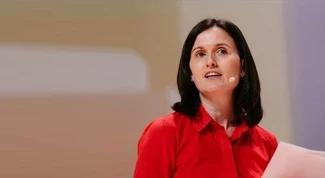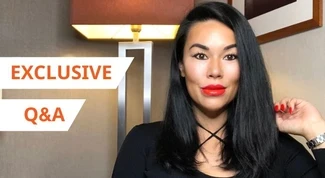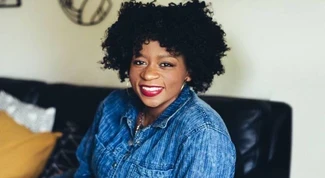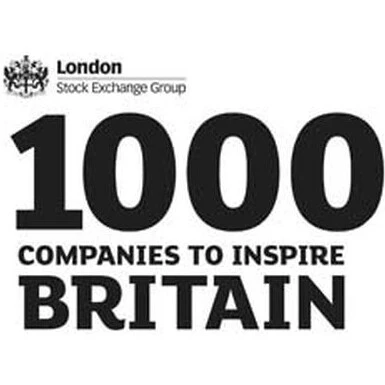Beginning his career in journalism, Sir Craig Oliver was promoted to Controller of English BBC Global News at a time of extreme volatility and technological change. Successfully navigating his way through the birth of the 24-hour news cycle which forever changed traditional communication strategies, Sir Craig was appointed David Cameron’s Director of Politics and Communications during his tenure as Prime Minister.
In this interview, Sir Craig discusses Brexit, how to maintain attention in an era of fast news, what he learned about leadership from David Cameron, and journalism's future.
Q: What advice could you give to businesses looking to better develop their digital communication strategy?
“You've just got to absolutely immerse yourself in the digital communications world. The only way to do that is to make sure you've got social media accounts that you're publishing things on, and that you're constantly aware of what the latest techniques are.
“I also think businesses must have young people around the table because they’re digital natives who are very, very used to this, and it's very natural for them. You have to take advice from them, and you have to see what works for them.
“A lot of businesses and a lot of organisations cling onto the past. It's a bit like saying, ‘I'm not really convinced by this newfangled thing, the printing press or radio or television’- it's been the future for a long time now and people really have to get on board with it.”
Q: What is your opinion on Brexit?
“The reality of Brexit is, without getting into too much about the rights and wrongs of it, it's really highlighted a cultural split in this country, and people have become very tribal. There's a real danger that people will descend into social media bubbles or filter bubbles and we’ll end up in a situation where there's just a vast cultural divide in society.
“What's really important is that politicians don't seek to exploit that, they try and find ways to unite people. Once we finally get past coronavirus and Brexit, there's a huge number of issues this country is going to face, and that's going to require a lot of united effort. I fear sometimes there's an awful lot of division and tribalism, and not enough preparedness to work together.”
Q: In your opinion, what qualities constitute a good leader and what leadership qualities does David Cameron possess?
“It's really important that a leader has a clear sense of direction. I also think it's really important that they get a kick out of being with people. There are some really good examples of leaders who are clearly uncomfortable around people, and if that’s the case, I don't think you can be a good Prime Minister. So, you need a clear sense of direction, a willingness to work together and compromise”
“One of the great characteristics David Cameron had was moderation. I think a lot of people miss moderation, and they feel that politics has become very tribal. People have become very ideological in their approaches. What I liked about David Cameron was the fact he was very clear about what he believed in terms of the economy and being socially liberal, but he was also prepared to talk and be moderate and have discussions with people about it, to find a way through, and I think a lot of people are missing that in society today.”
Q: You were working in media at the beginning of the 24-hour news cycle - What was that like? How did you manage stress and anxiety?
“I think we've actually moved away from a 24-hour news cycle into something that I call a 360 media cycle. What I mean by that is we are completely surrounded by news all the time. The next deadline is the amount of time it takes somebody to type a tweet. So, you've gone from a situation where the deadlines are top of the next hour, to constant deadlines. That is an incredibly stressful environment, and I think we need to develop tactics to deal with that.
“Businesses need to be supple and lithe enough to be able to respond quickly and effectively, to not be constantly engaged in tactics and bogged down dealing with things but have a strategy to really remain focused on. The danger is you’ll get sucked into firefighting constantly when you really need to be able to put out the fires, but also have a real sense of direction so you don’t get constantly distracted.”
Q: What is the secret to capturing and maintaining audience attention in an era of fast news and clickbait?
“We're absolutely surrounded by clickbait. If you look at social media, you see constant attempts to have a bright, shiny thing that's going to attract people. Essentially, I don’t see anything wrong with that, provided there is some sort of full-fibre alternative.
“I think what's really interesting is the way digital media is developing, a lot of people really are seeking more in-depth approaches. The birth of podcasts, which often spend a lot of time on a very narrow detail of something, is showing people really do want more depth and detail. If you look at the success of publications like The New York Times, The Economist or the Financial Times, there is often a real solid niche of people who want more in-depth coverage.
“So, we're in a situation where I think the mainstream media is actually struggling, those journalistic entities that try and go down the middle seem to be struggling. The ones I think are more successful are actually going into more depth and detail or taking the frothier approach.”
Q: Do you think journalists have a place in commenting opinions on the political climate or should they simply report the facts?
“We definitely need a situation where there is clear fact-based news, which is just pure in its intent of saying, ‘OK, here's something that's happening and here are the facts’, and we also need comment, but I think there needs to be a separation of the two. If you look at a lot of media content at the moment, we don't really have news websites or newspapers, we often have campaign websites or campaign papers. So, when you go to a journalistic entity, they've got a world view and often the stories they cover and the way that they cover them are designed to make sure that world view prevails - you need to be very careful of that.
“If you go to the United States, I think actually there’s almost nowhere that isn't reporting from a particular point of view, the broadcast media increasingly comes either from a right-wing or liberal bias. The newspapers have their own particular editorial points of view, and it's very, very hard to find news that is just purely news - that is worrying.”
Q: As a former advisor at Downing street, what would your advice be to Boris Johnson during this time with regards to his communication to the public?
“At the moment, what's really important is that the government is factually accurate and straightforward, and also picks a lane and sticks to it. I think one of the things people have struggled with, is that the government has been quite hyperbolic in its approach. They’ve often said, ‘we're world-beating, we’re world class’, and as a result of that, pride comes before fall, they sort of trip up and realise there are all sorts of problems and systems that aren't working.
“I also think what people really want is just a straightforward recounting of the facts. There is a role for creating hope and making sure that people have the right morale, but I think there's been a bit too much of the latter and not enough of the former.”
Q: You've had an extensive career at the BBC and at Number 10, which was more challenging?
“Number 10, definitely! The way I describe it to people is it's a bit like being plucked from the riverbank and being thrown into the white-water rapids. I mean, nothing can prepare you for a world that is just completely all-encompassing and immersive.
“When you're in a political environment, there's a lot of people who are paid to trip you up. Working a job where hundreds and hundreds of people spend their day looking for the flaws in what you've done can be quite a stressful experience. The only way to really deal with that is to try and become a bit Zen about it, to realise that it's not personal, it's just part of the way that democracy operates. You have to make sure you've got a great team around you, which fortunately I did.”
Q: What advice can you offer a corporate audience as a speaker backed by your professional experience?
“What's really interesting is a couple of months ago, it was the 50th anniversary of an essay that Milton Friedman wrote for The New York Times, which basically said the only point of business is to make a profit. I think there's been a complete 180-degree turn from that. Increasingly, what's become really clear is that, as well as making a good product or service, businesses need a clear purpose.
“If you don't have a clear view of what your values are and how you fit into wider society, then you are going to struggle as a business in the modern world. Working out exactly what that is and how to communicate that is extremely important.”
Q: What is the future of journalism?
“That's a really big question. I think, on the one hand, we’re going to continue to see frothy clickbait, but I do think we're going to see some more niche providers, for example, the FTC, The New York Times and The Economist are doing extremely well and will continue to do well.
“I think mainstream media is still struggling to find its place and purpose in this world. How does it fit? What are people looking for? People often want more tailored services that fit their wants and needs, and I think quite often mainstream media struggles to keep up with that.
“The other big worry is that journalism does not make a lot of money. In the past Journalism has been invested in a huge amount, but at the moment we're seeing more and more outlets and more and more ways of communicating, you have your podcasts, Instagram, Twitter, online print, you name it, it's there. And this means Journalists are spread thinner and thinner with fewer and fewer resources. So, that's a concern going forward, we need to see journalism that’s properly invested in. Until it can make a profit or find ways of making a profit, that becomes quite difficult.”
Q: What qualities do you possess that you believe have led to your success?
“I have always been endlessly curious, and I've always loved being at the centre of things. Sometimes that's been a bit of a problem - they say, ‘curiosity killed the cat’, a couple of times it nearly killed me! But I think, for the most part, doing something I love, having a front-row seat watching history unfold has been an extraordinary experience, so I've been incredibly fortunate.”
Q: If you could give yourself one piece of advice at the start of your career, what would it be?
“When you are very young, you think you've got less time than you actually have, but you've got time to really explore and find out what it is you really want to do. Maybe focus on something, and don't worry too much about that taking a little bit more time.”
“I would say find something you love, do it and don’t choose something simply because you think it’s going to make you a lot of money. A lot of unhappy people in middle age do that and regret chasing something that they actually find quite boring or difficult. You've got to find a career that you actually really want to do because you spend most of your waking life doing it!
“I remember saying to one of my bosses at the BBC, a guy called Peter Horrocks, ‘there's this problem with this, and this problem with that. It's a nightmare. We've got to do this. We've got to do that’. And he just stopped and said, ‘Craig, there's always something happening’. And what he meant by that was, there's never a time when it isn't complicated, difficult and bothersome, that's often the norm. So actually, try and chill out, be a bit more Zen about it - I think that's good advice too.”
Hire Sir Craig Oliver
Contact the Champions Speakers agency to provisionally enquire about Sir Craig Oliver for your event today. Simply call a booking agent on 0207 1010 553, email us at [email protected] or fill in the online contact form.









